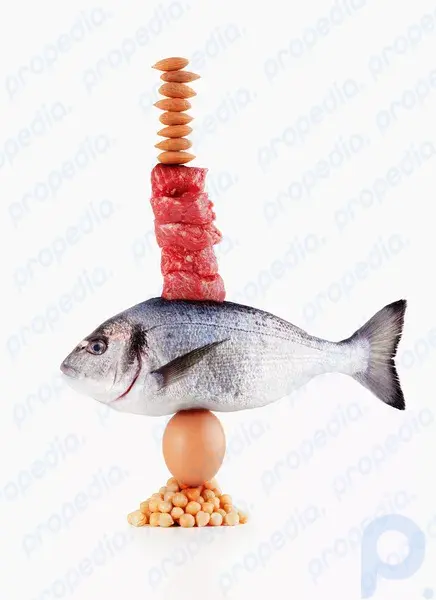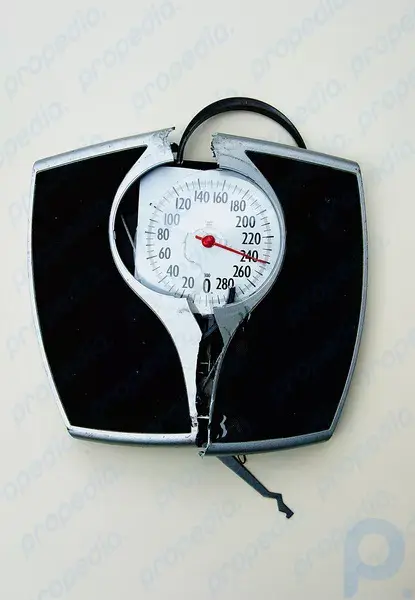Experienced nutritionists and endocrinologists analyzed twelve popular diets and rendered their verdict. How each of them is safe for health and at the same time effective is in our special test drive.
The ever-relevant question “How to lose weight?” For many of us, it becomes especially acute on the eve of summer. Beach season is just around the corner, you want to look your best in a bikini, but in reality, exciting shapes appear in the mirror...
A recent survey showed that 59% of Russian women are ready to voluntarily deny themselves the pleasure of eating delicious food for the sake of a beautiful figure.
How to do it? Of course, go on a diet. And of course, the most effective one. How to choose one from the variety of the most discussed and advertised ones?
Scientists are trying their best to put an end to the endless debate about which diet is best to adhere to, but their research only makes us wander around the supermarket even longer. Either they will announce that pasta does not harm the figure, then they will admit that one of the most popular weight loss methods - the blood type diet - is ineffective, then they will rehabilitate fats and call carbohydrates the new enemy of slimness.
Together with leading nutrition experts and endocrinologists, ProPedia tried to understand this issue. We asked experts what they think about the Kremlin, kefir, Japanese, Paleolithic and other types of diets that everyone hears about, in order to understand which of them are the most effective and which can be hazardous to health.
The ABC diet is an extremely strict diet that lasts 50 days and alternates periods of extremely low-calorie eating with periods of complete starvation.
Irina Popova, head of the advisory and diagnostic department of the Austrian health center Verba Mayr, nutritionist and general practitioner, believes that such a diet can only be recommended to people on the verge of diabetes. The expert is confident that a radical and rapid reduction in calories is extremely harmful to the body and is useless in the long term. For therapeutic fasting, it is important not just to reduce calories, but to select a menu that includes proteins and fats, and smooth entry and exit from such a diet.
“This diet is certainly effective; it will teach you how to count calories and understand the calorie content of foods. The downside is that, like all restrictive diets, it’s hard to get used to. When eating with an extremely low daily caloric intake, there is a high probability of poor health: severe hunger, weakness, dizziness, abdominal pain and even fainting. Weight loss occurs due to both fat and muscle mass. If, after finishing the diet, you resume your previous lifestyle, the lost kilograms will return. In women, rapid weight loss can lead to functional disorders of the menstrual cycle, even to its complete cessation,” says Natalya Dubyanskaya, an endocrinologist at the MEDSI Clinic in Khoroshevsky Proezd.

Various variations of the ketogenic diet suggest that you eat no more than 50 grams of carbohydrate food per day. When planning your diet, you need to focus not on the weight of food, but on its relative volume, creating a daily menu of 70% fats, 20% proteins and 10% carbohydrates.
Irina Popova notes that when there is a lack of carbohydrates in the body, the process of ketosis (the breakdown of fats) occurs, which leads to the release of large energy reserves from fat - 9 kcal per 1 gram of fat versus 4 kcal per 1 gram of carbohydrates.
“The person begins to feel energetic, and cognitive abilities improve. However, the same effect can be achieved by regular fasting, when the liver does not have enough carbohydrate reserves and the body begins to use accumulated fat. In addition, an excess of fatty foods may be contraindicated for people with diseases of the pancreas and gallbladder.
“Unlike other low-carb diets, the ketogenic diet limits protein to a minimum, but does not limit fat or total calories. A meta-analysis of 13 randomized controlled trials published in 2017 found that people who follow this type of diet tend to lose more extra pounds than those on low-fat diets. The feeling of hunger also decreases and, as a result, overall calorie consumption decreases. Side effects are the same “keto flu” (dizziness, weakness, constipation, poor sleep), but they usually go away after a few days,” comments Natalya Dubyanskaya.

Система, известная под названием «Минус 60» или диета Екатерины Миримановой, не предполагает строгих запретов: можно и жареное, и соленое, и сладкое. Ограничения есть во времени. День условно делится на три части: утро до 12, день до 18 и вечер. Утром разрешены любые любимые продукты и лакомства, кроме молочного шоколада, а перед сном разрешено только пить воду.
“In the morning and at lunchtime, you can really afford a little more, since metabolic processes occur at an accelerated pace. If you simply eliminate or minimize dinner and avoid eating after a certain hour, it is much easier to restore glucose levels and improve the condition of the gastrointestinal tract. The disadvantage of this diet is that it allows essentially everything, including sugar and salt. This can slow down the weight loss process. This nutrition system should be combined with a balanced selection of products,” comments Irina Popova.
Natalya Dubyanskaya believes that such a diet is suitable for disciplined people with a clear daily routine. Pros - it allows you not to give up sweet and high-calorie foods at all (can be consumed for breakfast, until 12 noon). This gives a certain psychological comfort, a feeling of freedom of choice. However, the “Minus 60” diet is not suitable for people with long working hours and those who are used to going to bed late. Dubyanskaya notes that this diet does not cause a pronounced feeling of hunger. However, long-term carbohydrate restriction is often difficult to tolerate psychologically, and cravings for sweets can lead to breakdowns. Side effects include constipation, fluid retention, the formation of kidney stones, the development of osteoporosis, dyslipidemia (this is not a disease, but a factor in the development of atherosclerosis - a chronic disease, characterized by hardening of arterial walls). The expert advises to first consult with a doctor, since such a diet is contraindicated for diseases of the kidneys and cardiovascular system.
“The 'don't eat after six' diet, like all diets based on intermittent fasting, ultimately leads to the body switching to a mode of economical energy consumption. After short-term success and weight loss, a period of “weight plateau” begins, followed by a relapse of weight gain. This is due to a slowdown in metabolism due to prolonged episodes of fasting,” says the endocrinologist, EASD member and author of the books “Diabetes” and “What’s wrong with me, Doctor? The whole truth about the thyroid gland,” Olga Demicheva, expert of the “It’s Time to Be Treated Correctly” program.
- Intermittent fasting: should you not eat for a day, a week or a month?

This is a low-calorie, protein, low-carbohydrate diet designed for 14 days. The main component of the diet is protein, obtained from eggs, chicken, beef, fish and dairy products.
Research shows that such a diet has a good effect on the cardiovascular system and is rich in antioxidants, which protect cells from damage and, accordingly, protect against aging. However, Irina Popova notes that to create such a diet, it is difficult for residents of the middle zone to choose a diet so rich in seafood.
Natalya Dubyanskaya is sure: the main advantage of this diet is the rapid loss of extra pounds. The downside is a strong feeling of hunger and difficulty maintaining the achieved weight.

Fasting days are not fasting. These days you eat small meals 6-8 times a day and drink a lot of water, while eliminating the consumption of sweet, fatty and salty foods.
Irina Popova is confident that this is an extremely effective system not only for normalizing weight and lowering glucose levels, but also for maintaining liver health. Fasting days, in which calorie intake is radically reduced, help get rid of a couple of extra pounds after the holidays and restore cell sensitivity to insulin, which reduces the risk of diabetes. This diet also helps rid the body of the consequences of undigested food leftovers remaining for several hours in the lower intestines: reducing the processes of putrefaction and fermentation that lead to intestinal irritation and liver overload.
“A significant disadvantage of such diets is a sharp restriction of fat, which is unacceptable for women, especially those of reproductive age. Such diets may be suitable for people who are slightly overweight, but to create a balanced diet, it is better to consult a specialist,” advises Natalya Dubyanskaya.
- Is this the norm? Malysheva arranges fasting days, even if she has gained only 200 grams

The Dukan and Atkins diets involve reducing the proportion of carbohydrates and increasing protein foods. You need to eat 4-5 times a day in small portions. You should completely avoid eating foods containing simple carbohydrates (honey, sugar, chocolate, baked goods). The basis of the diet is protein-rich foods - lean meats, poultry, river and sea fish, egg whites, milk and fermented milk products, soybeans, legumes and some cereals.
Irina Popova confirms that a high-protein diet helps you quickly lose weight. Protein products take a long time to digest and at the same time give a feeling of fullness for many hours. However, according to the expert, you cannot stick to such a diet for too long: it is extremely important for the body to receive fiber, fats and carbohydrates (at least in small quantities). The Dukan and Atkins diets are also not suitable for people with kidney disease, since at this time protein metabolism is disrupted and their constant excess can lead to a worsening of the condition.
- Dukan diet: recipes for first, second and dessert
Natalya Dubyanskaya warns that an excess of protein (which occurs with the Dukan diet) can lead to exacerbation of gout, cholelithiasis and urolithiasis, and chronic constipation. The Atkins diet is richer in fat, which means it is easier to tolerate and does not lead to a pronounced feeling of hunger. The downside is that a sharp restriction of carbohydrates (especially at first) can cause weakness, dizziness, difficulty concentrating, and even the smell of acetone on the breath.
This is a protein diet with a low carbohydrate content (their amount in dishes is estimated in points, the diet is formed according to these calculations). Meat, offal, sausages, sausage and fish can be eaten in any quantity.
“This low-carb diet option is effective for long-term weight loss. It’s worth remembering that it’s important to consume enough fluid,” says Irina Popova.

The 7-day kefir diet, for all its severity, is not formally considered a strict mono-diet - that is, during the week you can add one or two other low-calorie products to the kefir every day.
Irina Popova is sure that like any diet that requires strict food restrictions, it does not bring long-term effects and is not very beneficial for the body.
“With a kefir diet, the body does not receive enough calories, but also useful microelements. This can lead to poor health and hunger,” says Natalya Dubyanskaya.
Larisa Dolina's diet for weight loss: kefir, hockey and the dream of a beautiful body

The average daily caloric intake of food consumed by an adult is from 1.8 to 2.5 thousand calories. Protasov's diet, consisting mainly of vegetables and milk protein, reduces this bar to approximately 1.2-1.5 thousand calories per day.
“Vegetables and fruits plus protein are a great nutritional option. In addition to restoring glucose levels, such a diet normalizes the acid-base balance of the body. It’s worth remembering that fiber and protein take a long time to digest and you shouldn’t even gorge on vegetables and fruits at night. Don't forget that vegetables and root vegetables are not synonymous. Potatoes, carrots and beets contain a lot of starch, so they are very high in calories,” warns Irina Popova.
“Protasov’s diet will help instill some healthy eating habits and make bowel movements regular. However, raw vegetables in large quantities are often poorly tolerated, causing flatulence and abdominal discomfort. Dairy products are also not suitable for everyone. Like any time-limited diet, it will not allow you to maintain weight for a long time,” warns Natalya Dubyanskaya.
Photo: Getty Images

